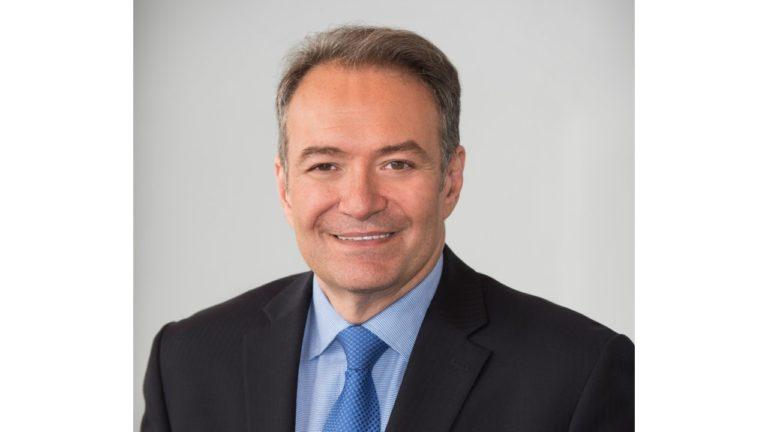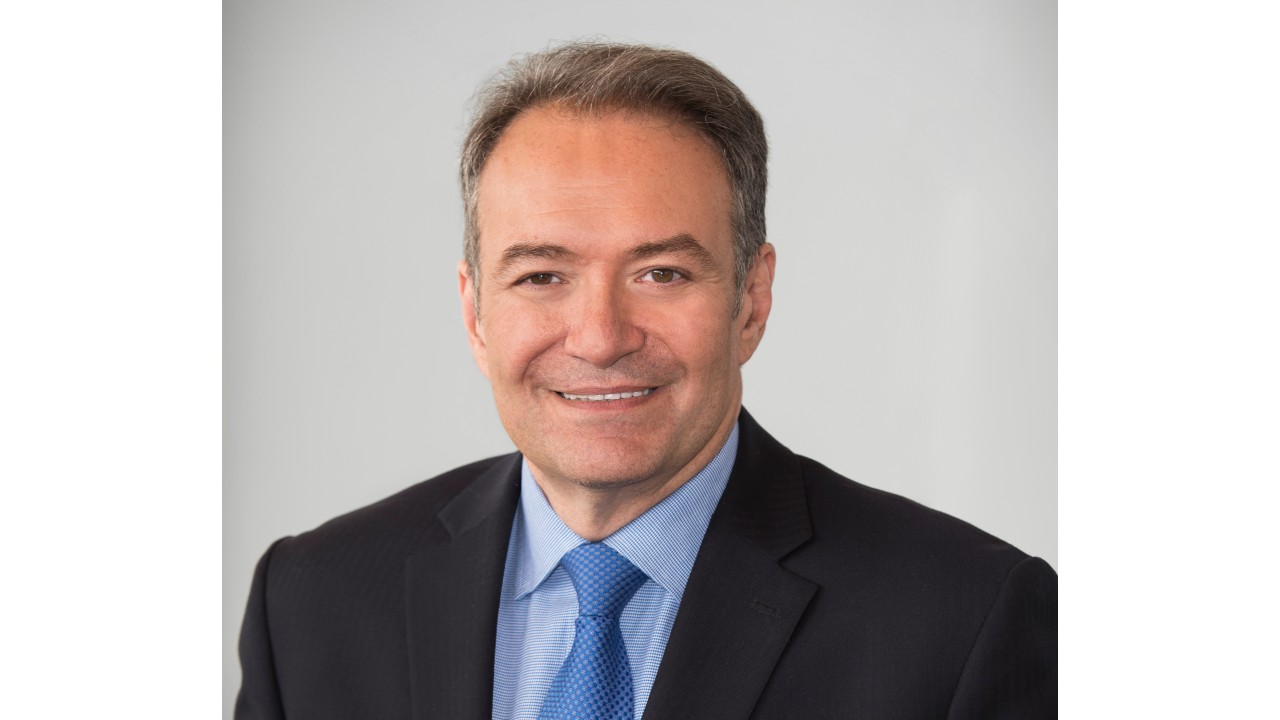Q&A: Dr. Kevin Smith on the fight against COVID-19
University Health Network CEO on their most promising research projects, protecting the physical and mental wellbeing of healthcare workers, and putting patients first

Share

As president and CEO of University Health Network (UHN), Dr. Kevin Smith is acutely aware UHN’s essential role in the fight against COVID-19—but it was particularly memorable to see it first hand. What stayed with him long after his visit to a UHN intensive care unit wasn’t just the diverse needs of the COVID-19 patients, but the level of care provided by the staff.
“Team UHN was remarkable, gathered around these patients, recognizing that this is a dangerous disease, and giving it their all for every patient,” he says, adding that he witnessed that camaraderie and commitment from physicians and nurses, housekeepers and ward clerks. “It truly was an amazing team effort, everyone was in this together and appreciated each other.”
Located in the heart of Toronto, UHN, Canada’s largest and most research-intensive hospital, encompasses Toronto General Hospital, Toronto Western Hospital, Princess Margaret Cancer Centre, Toronto Rehabilitation Institute and The Michener Institute of Education. Since the onset of the COVID-19 pandemic, UHN has been on the frontlines of both treating patients and searching for a cure. Here, Dr. Smith elaborates on UHN’s leadership in the fight against COVID-19.
What does your typical day look like right now?
A lot of Zoom or Microsoft Teams meetings. I spend a lot of time listening, learning and communicating, answering questions from our team members and looking at what’s really going on with COVID. Our highest priority is protecting our team. I also spend a considerable amount of time working with the various levels of government and other provider colleagues, looking at how we all do our best to control COVID-19 and get back to a semi-normal Canadian lifestyle. We must anticipate wave two, so we’re concurrently thinking about how to protect ourselves, and particularly, the most vulnerable and frail amongst us, from a resurgence of this disease, which is likely.
UHN staff found several ways to specifically help those vulnerable populations, for instance, at Rekai Centres nursing homes. Why do you think so many UHN staff volunteered to help long-term care facilities?
It was pretty simple: these residents are very ill, they were either coming to UHN, or we were going to care for them in their home. And we know that frail, elderly people who don’t need to be in an acute care environment don’t do well in an acute care environment. Our motto has been the needs of the patient come first, and if that’s true, this was our opportunity to demonstrate that and go to those individuals in need, as well as support our colleagues. Everybody, literally from doctors and nurses to our management team, was there.
Given that in Canada we have publicly funded health care, what role do donors play in helping UHN’s response to COVID-19?
Roughly 70% of the system is publicly funded. There are many areas, like dental care and eye care, that are not publicly funded. Long-term care, research and equipment are only partially funded by the government. We had many donors come forward and say: We’d like to support UHN as a leader in fighting and curing COVID-19 – can you tell us how we can best help? Donations went to support, for example, using iPads to allow virtual family visits to occur, while visitors weren’t allowed in the hospitals and of course essential research into understanding and combating this disease.
The donors have been wonderful, and we would otherwise not have had the capacity to do this, for example focus on the wellness of caregivers and support staff. Donors helped provide hotel rooms for healthcare workers worried about exposing their families who had illnesses which, if they contracted COVID-19 could have been catastrophic. Donations also helped provide food vouchers, augmented our mental health offerings, supported our respite centres and the more than 40 COVID-related research studies currently underway at UHN. Donations even provided support for purchasing ventilators in the event our ICSs were overwhelmed. We have received overwhelming support. It has been just remarkable.
You mentioned that UHN has more than 40 active COVID-19 research projects underway—can you tell me about some of those projects?
One of the most exciting projects is our “Research Platform to Screen and Protect Healthcare Workers” (RESPECT) study. With this study, we can get a better understanding of how many people may be working in our hospital setting, without symptoms, and could potentially be spreading that to patient populations or other care providers. So that’s a really important piece of research that’s going on.
We’ve also have researchers looking at an antiviral drug, historically used as a cancer-related therapy, and others are investigating inhaled nitric oxide as potential ways of treating COVID-19. It’s researchers from every discipline. So, from surgery and infectious disease to basic scientists wanting to understand the molecular level of COVID disease through to our biomedical engineering colleagues working on ventilators, literally every domain of research has been involved.
Can you tell me about a particular day or encounter from this COVID-19 pandemic that has stayed with you?
I remember talking to a wonderful lady at a Rekai Centre home who had been in a concentration camp in World War II. She said she had seen a lot of things in her life, but this too shall pass. She just left me with a feeling that we will be OK and good people will continue to do what needs to be done. It motivated us all to continue on.
This interview has been edited and condensed for clarity.
